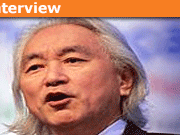Interview with Physicist Dale
Meet a Mentor is a fun series to help you get to know your wonderful Mentors better.
Constructive questions and comments are welcome!
Today we meet: DaleSpam
Give us a brief history of DaleSpam
I have moved around a decent amount during my life: Arizona, Indiana, Colorado, Texas, Michigan, Utah, Ohio, and North Carolina. With all of that I guess that I would consider myself a Texan who currently lives in North Carolina.
I did my undergraduate work in Texas, taking two years off to serve a mission for my church. At the time I started, my school was one of only 8 universities which offered Biomedical Engineering at the undergraduate level, so it was a good fit. I met the girl that later became my wife there in Texas just a few months before I went off to graduate school in Ohio.
Ohio was a pretty big culture- and weather-shock from Texas, so I vowed to head back south as soon as possible. I kept in touch with my wife and went back to Texas frequently to visit her that first year, and then we got married and she moved up to Ohio with me. It took me a while to finish graduate school, so by the time we left we had three children.
My research in grad school was on magnetic resonance imaging pulse sequence design. During that research I established some good connections in industry, and those contacts made it fairly easy to get a job quickly, and they had a position open in North Carolina. So we moved back south, had one more child, and have been here ever since.
Why did you choose biomedical engineering as your field of study?
I guess that engineering is in my blood. I have five generations of engineers in my family. I never felt any pressure to do engineering, but I was just kind of naturally interested in something that was both creative and technical. So engineering was a natural fit.
I became interested specifically in biomedical engineering after attending a SBME conference with my dad during my senior year in high-school. He was presenting at the conference (he is a chemical engineer) and we took the chance to make a college visit out of it. During the conference we watched a presentation from a group of NASA engineers on a lower-body negative pressure device for exercise in microgravity. During the presentation they mentioned a specific design challenge that they faced, I leaned over to my dad and told him how I would solve it, and then later in the presentation it turned out that was exactly how they solved it also! I was hooked after that.
What were some of your biggest challenges while at university?
With three kids, finances were without a doubt the biggest challenge. I had a stipend from my research advisor, and on the side I tutored physics and calculus and helped do administrative tasks at the lab. With all of that we were able to make ends meet. We were officially under the poverty line the entire time, but had a comfortable life and were able to finish without substantial debt.
Can you tell us about your career in medical imaging?
When I first left grad school and went into engineering I was a “Collaborations Manager”. Basically, my company is heavily involved in extra-mural research partnerships. My job was to work with those research partners and make sure that their research was able to progress on our equipment. I also would take particularly promising projects and feed them back to the developers in the factory.
After a couple of years of that, I was promoted to a management position. Now, I do the same thing, and also lead a team of other scientists with similar responsibilities. I have been doing that ever since. I find that my communication skills (verbal and written) tend to be much more important than my technical skills.
How is your MBA going? What do you plan on doing with it?
So far it is going well. I must admit that I went into it a little “cocky”. I thought, “If I can do engineering then this business stuff will be trivial, I will spend 20 or 30 minutes a week on it and easily get it.” The concepts are not that hard, but there is a lot of work involved and a ton of reading. It surprised me how much effort it has been.
Mostly I want it to improve my capability in my current role. I have had decades of training on the scientific and technical aspects of my job, but I am just navigating the business- and management-related aspects by instinct. My instincts are not too bad, so I have not made any major blunders, but I have found that the focused and deliberate training on business methodology has already been beneficial.
How did you interest in Relativity come about?
I think that my interest in relativity is mostly from finally “getting it”. Relativity was one of the subjects that I did not understand at first, so when I finally understood it the sense of accomplishment was that much stronger. I didn’t study it on a regular basis, and it was all self-study, but it took about 7 years from my first exposure to relativity until I finally understood it. The key, for me, was the mathematical framework of four-vectors and drawing my own first spacetime diagrams.
What topics in Relativity are you most closely watching?
I was very interested in Gravity Probe B, but felt rather disappointed by the results. I am also interested in two theoretical developments, but I don’t see much progress on them. I would like to see a test theory of GR which is applicable to strong fields (as opposed to PPN), as well as a coordinate independent (tensor) formulation of a SR test theory.
If you could have lunch with living physicist, who would it be and why?
Leonard Susskind. I have really enjoyed his video lectures on You Tube. He just seems like a fun guy to hang out with.
What Martial arts are you interested in and share with us how you got started?
We go to a Korean martial arts school, so their primary martial arts are Taekwondo and Hapkido. My two oldest kids are second-degree black belts in Taekwondo, my third child and my wife are first-degree black belts in Taekwondo, and our youngest is a red belt. I am currently in training for my first-degree black-belt test for Hapkido which is scheduled for May 2014, and my three older kids have started taking Hapkido also.
We started going to the school for the older three kids for Taekwondo. I was never terribly interested in Taekwondo, but at one of the testing days I saw the Hapkido people testing and thought that it looked interesting. Hapkido does punches, strikes, and kicks, similar to Taekwondo, but also has “soft” skills like sweeps, throws, and joint locks and breaks. So it just seemed more well-rounded and complete. It also is focused on self-defense rather than forms, which appeals to my practical side.
So now our whole family does martial arts. It works out well because, with four kids, if everyone had their own activities then we would spend all of our time just driving from place to place. Here we can all go and each get a good workout and learn a good skill at our own level and pace, but all together. Prior to this I never was particularly athletic or physically active. So for me this has been a very enjoyable experience. I have gotten to the point that when I am away from training for a while I begin to physically miss the activity. I feel stronger, more fit, alert, and healthy than I have ever been at any previous point in my life.
What are some of your favorite movies, books and musicians?
I like country music, which probably isn’t surprising given my Texas roots. For books I like science fiction, especially Heinlein and Orson Scott Card. For movies, I tend to enjoy superhero movies and comedies although I am really not that picky.
Thanks for participating Dalespam!
I have a BS in Information Sciences from UW-Milwaukee. I’ve helped manage Physics Forums for over 22 years. I enjoy learning and discussing new scientific developments. STEM communication and policy are big interests as well. Currently a Sr. SEO Specialist at Shopify and writer at importsem.com








For those interested in Hapkido:
Thanks for the link!
In that video the patch on the left breast of the uniform is the symbol of the Korea Hapkido Federation, which is also the organization that my school belongs to. The video was pretty accurate regarding the techniques that we do here, although those guys are significantly better at them than I am :smile:.
how many years has it taken to get to black-belt test?I have been in training for a little more than two years now, and it will be about 2.5 years total by the time the test happens.
For those interested in Hapkido:
DaleSpam, how old was you when you went to martial arts school? and how many years has it taken to get to black-belt test?
We have a small army at hand, I can think of at least two other Mentors that mentioned knowing martial arts.
And I don't think about three (or was it four?) months of karate training from my teenhood. Whole my generation went to these lessons after Enter the Dragon.
Yes, I noticed that from your bio too! I plan to continue with Hapkido for quite a while, but eventually I thought I might try something like Krav Maga or some other even more strongly hybrid/eclectic martial art.
Excellent bio! (Happy to see another martial artist out there too.)
Wait? What? There's a dominant theory in economics?Yes, the law of supply and demand is clearly the dominant theory in economics. My problem with it is that it is very difficult to actually know the demand curve or the supply curve, so it seems hard to falsify it.
Can I ask what your favourite Heinlein book is? I'm a great a great fan of his!My two clear favorites are "The Moon is a Harsh Mistress" and "Starship Troopers", but I think I would give a slight edge to "The Moon is a Harsh Mistress".
Well, in science for each topic you get exposure to a clearly dominant theory and the clear evidence that supports it and contradicts opposing theories. In the MBA for each topic we get exposed to several theories, none of which are clearly dominant (except in economy) and there is little evidence supporting or contradicting any of them. Also, what limited evidence does exist seems to not generalize well.Wait? What? There's a dominant theory in economics?
I once asserted that the science of economics was the equivalent of phrenology. (or was it economists being the equivalent of being phrenologists?)
Never mind my confusion! ref
ps. Let me know if you need any financial help getting your kids an engineering degree. I plan on not being completely broke in the future. o:)
Would you mind telling us about a particularly interesting or fundamental MBA theory?There is no fundamental business theory AFAIK, but there are several interesting ones. I found the theories of leadership particularly interesting and frustrating. They all sound nice, but I haven't seen any scientific validation of any of them. Here is a page which gives you the flavor of the theories of leadership, although the list is not identical to the ones in my textbook.
http://psychology.about.com/od/leadership/p/leadtheories.htm
Great bio. With your interest in Relativity, then you'd probably like Zee's book on Einstein gravity in a Nutshell.
Can I ask what your favourite Heinlein book is? I'm a great a great fan of his!
Would you mind telling us about a particularly interesting or fundamental MBA theory?
Four children, WOW!!:smile: thanks, I have enjoyed being a father more than I expected to. I like seeing the kinds of people they are becoming as they mature. I am glad I have so much help and support from my wife too.
Well, in science for each topic you get exposure to a clearly dominant theory and the clear evidence that supports it and contradicts opposing theories. In the MBA for each topic we get exposed to several theories, none of which are clearly dominant (except in economy) and there is little evidence supporting or contradicting any of them. Also, what limited evidence does exist seems to not generalize well.
Wow, very impressive.
How are your MBA studies different from science?
Great bio Dale. So interesting to find out things about people here that I did not know. Four children, WOW!!